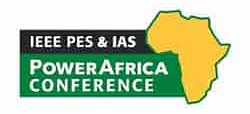Dr. Omowunmi Mary Longe
Dr. Omowunmi Mary Longe is presently a Senior Lecturer in the department of Electrical and Electronic Engineering Science, University of Johannesburg, South Africa. She is also the Chair of Smart Power and Energy Research Group in the department. She received her Doctor of Engineering (D.Eng) in 2017 from the University of Johannesburg in Electrical and Electronic Engineering Science. Her M.Eng and B.Eng degrees were obtained in Electrical and Electronics Engineering in 2011 and 2001 respectively from the Federal University of Technology, Akure, Ondo State, Nigeria.
She is a Senior Member of the Institute of Electrical and Electronics Engineers (SMIEEE), and Senior Member of the South African Institute of Electrical Engineers (SMSAIEE). She is the pioneering IEEE PES WiP Lead for South Africa and Southern Africa. She is also a member of other notable professional organisations such as the Society of Women Engineers (SWE), Nigeria Society of Engineers (NSE), Association of Professional Women Engineers of Nigeria (APWEN), and the Organization for Women in Science for the Developing World (OWSD). Dr. O. M. Longe is also registered with the Engineering Council of South Africa (ECSA) and the Council for the Regulation of Engineering in Nigeria (COREN). She is the Vice Chair of IEEE PES Women in Power executive committee (2022 – 2023), IEEE PES Long Range Planning committee (2022 – 2023) and Education Chair for IEEE Smart Village – Africa Working Group (2022 – 2023). She also founded the first IEEE Smart Village student branch in the world at the University of Johannesburg in May 2021. She has served as member of Technical Programme Committees for local and international IEEE conferences.
She has published more than forty papers in referred journals and conference proceedings. She is also a reviewer for ISI-listed journals and referred professional conferences. Her research interests include Renewable Energy Technologies, Microgrid design, Electromobility, Distributed Energy Storage, Distributed Energy Generation, Rural Electrification, Energy Poverty, Energy and Gender Poverty Nexus, Demand Side Management, Smart Energy Management, Energy Efficiency, Demand Response, Women in Engineering studies, Food-Energy-Water Nexus 4.0, Engineering Education, and 4IR and Energy Systems Nexus

